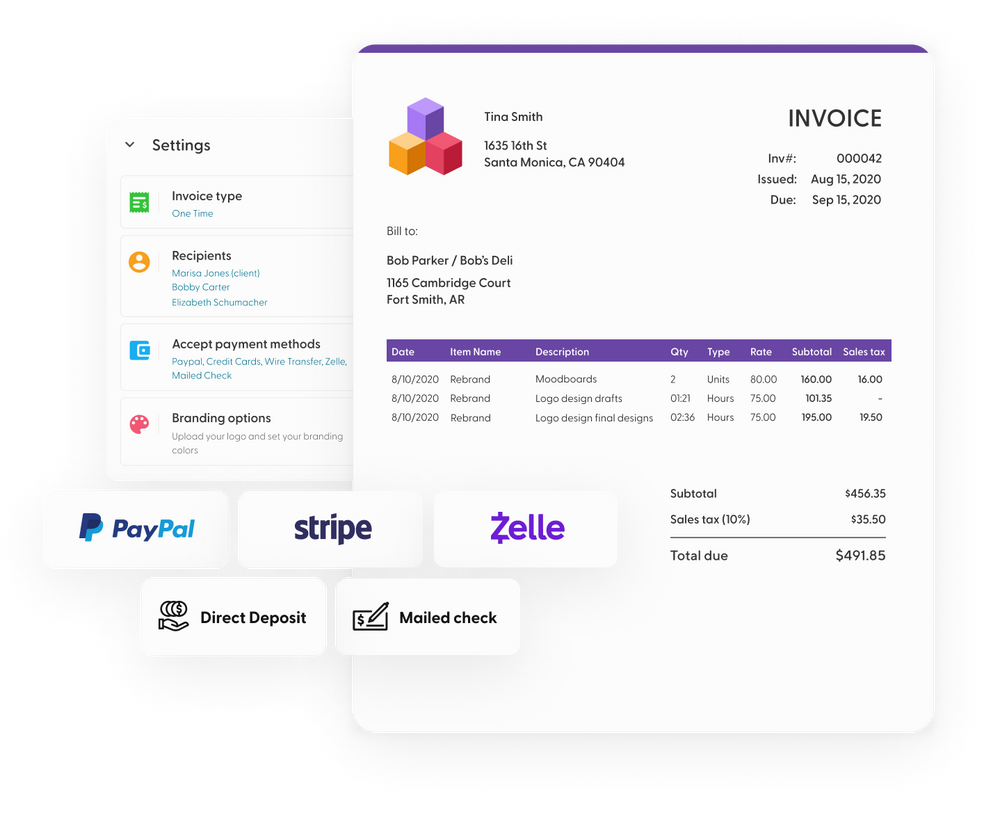In the wake of the nightmare that was 2020, we’ve all learned new ways to make it through our days (as best as we can). Many of these changes have been frustrating, but some of them have been pleasant surprises that may be here to stay. One such pleasure is working with virtual teams.
Many freelancers and forward-thinking companies are familiar with the advantages that virtual teams present, while others are still struggling with the growing pains of the transition. So, if you’re teetering on the brink between “for” or “against,” here are the top pros and cons of working with a virtual team.
Advantages of Virtual Teams
Let’s start by looking on the positive side, shall we? Growing your business with virtual teams comes with a long list of potential benefits.
1. Cost-Efficiency
Working with a remote team in a virtual workspace is hugely beneficial in terms of cost-efficiency. Instead of paying to rent out a depressing office building with fluorescents or an overpriced San Francisco startup space with beanbags everywhere, why not pocket the money and apply it to your actual business?
Your organization will grow in more meaningful ways and you could give your employees a one-time stipend to set up a home office for a fraction of the cost. No more paying for a professional to come to unclog the kitchen sink because Derek uses it as a garbage can.
2. The Best Talent
By opening yourself up to a virtual team, you’re able to extend your recruiting reach far and wide for the best possible candidates. Otherwise, there could be someone in another state or country who has the perfect skill set to grow your business, but you’re missing out because you’re landlocked to a specific zip code.
3. Productivity
One thing you may remember from the olden days (2019) is the exhaustion of unnecessary meetings. Who hasn’t felt that a meeting could be summarized in a concise email, rather than a 45-minute PowerPoint presentation? In a virtual team, the excess is trimmed down to avoid bogging everyone down in unnecessary communications.
4. Happy Employees and Contractors
If you’re able to provide your team with a healthy work-life balance, you’ll save them from burnout and you’ll probably have a stronger commitment from them. Perhaps they have children or pets; by cutting out their commute and giving them more face-time with the important people in their lives, you’re setting up a system that works for their unique lifestyles. It’s more accommodating to teammates trying to “have it all” and it increases the perspective that you have your employees’ best interests in mind.
5. Better Health
Personally, I get more sleep on a remote schedule. I am less tired during the day because I can essentially roll out of bed and walk seven feet to my desk - no more waking up two hours before my shift so I can beat traffic. I also have time to cook healthier meals for myself and I don’t have to worry about them leaking into my work bag during the commute. I have time to work out, sometimes on my lunch break!
All of these lend to more energetic and productive employees who are far less likely to take a sick day because they’re taking better care of themselves. Yes, I am still picking at my fridge every 30 minutes, but the pros outweigh the cons.
6. Adaptability
This year, some companies took to virtual teams more quickly than others. I’ve had the opportunity to work with two companies with very different success rates. One of them had no resources in place to work remotely, and they were entirely unprepared. Productivity was low and things were communicated poorly, leading to frequent misunderstandings.
The other team I worked with was quicker to embrace the virtual lifestyle and recognized it was here to stay. This flexibility prevented any hiccups in their workflow and they’ve just had their best quarter to date. By familiarizing yourself with virtual teams, you’re setting yourself up for success in the future, and whatever it may bring.
7. Better Communication
When you’re not able to swivel your chair around and tap a colleague on the shoulder, you take the time to be more conscious of your communications. How do you keep things concise and clear so you’re understood? It’s a skill that you develop over time, and virtual teams provide the opportunity to improve. Maybe the improvement takes place in your emails, meetings, or your training materials. Either way, you’ll walk away with a stronger team.
8. Skill Development and Software
Working with a virtual team often means embracing new tools to be more effective. Maybe that’s a communication tool like Slack or a project management tool like Asana (a step up from the departmental whiteboard). Familiarity with new software tools is great for personal development and will make your team more competitive in the long run.
9. Availability Around the Clock
By having a virtual team, you’re able to capitalize on increased availability. Maybe Trevor, your content strategist, doubles as a Zumba instructor and needs mornings off. You might have international staff who can be available in the middle of the night. By having a broader range of hours, the workday doesn’t have to end at five and you open yourself up to more opportunities.
10. Fewer Office Politics
Imagine an office where the press of your slacks and the quality of your fake laugh don’t factor into your success. A benefit of virtual teams is that communication and focus are directed on being productive; there are no accidental interactions as you stroll between cubicles. If you’re connecting with the team, it’s not for the miscellaneous water cooler talk. You can let the quality of your work outshine your ability to play the game.
11. Greater Scalability
If your team is managing to succeed, why should something like office space bog you down? Maybe you see tremendous growth, but you’re stuck in a lease that won’t accommodate new hires until your lease is up? A huge benefit of virtual teams is that you’re more scalable and quick to embrace growth, or conversely, the adoption of a more nimble team.
12. Amusing Zoom Moments
I think we’ve all been able to crack a smile at those special Zoom moments: someone’s kids busting in during a meeting, a teammate trying to use the platform to tremendous failure, someone forgetting to mute themselves at unfortunate moments… it’s the little things.
The Disadvantages of a Virtual Team
Of course, nothing is all roses. There are a few thorns to keep in mind, so be aware of these potential downsides to virtual teams.
More Effort to Build a Company Culture
Sometimes having virtual teams can be challenging for team members who are used to working in an office. When you're in an office, it's easier to build friendships and connect with people when you're not in meetings. This can happen during breaks, like lunch, or while taking the time to go grab a coffee. These small encounters paired with in-person team events can lead to deep friendships.
Virtual teams are able to build a company culture, however, it takes more energy and effort to maintain.
Productivity Can Sometimes be Hampered
Yes, I mentioned productivity as an advantage too, but it truly depends on the team and the individual. Many people have challenges when they first start working on a virtual team to keep themselves accountable and stay productive.
There are plenty of people that can be just as productive, if not more productive while working virtually, but it's a transition and a muscle that needs to be learned. Successful virtual teams can provide their employees with tips and tools on how to keep up productivity.
Are Virtual Teams the Right Path Forward for You?
Nothing is perfect for every scenario, but in most cases, the pros far outweigh the cons when it comes to virtual teams. Use this guide to decide if they’re the right fit for your blossoming business if so, go forth and start building that team.



